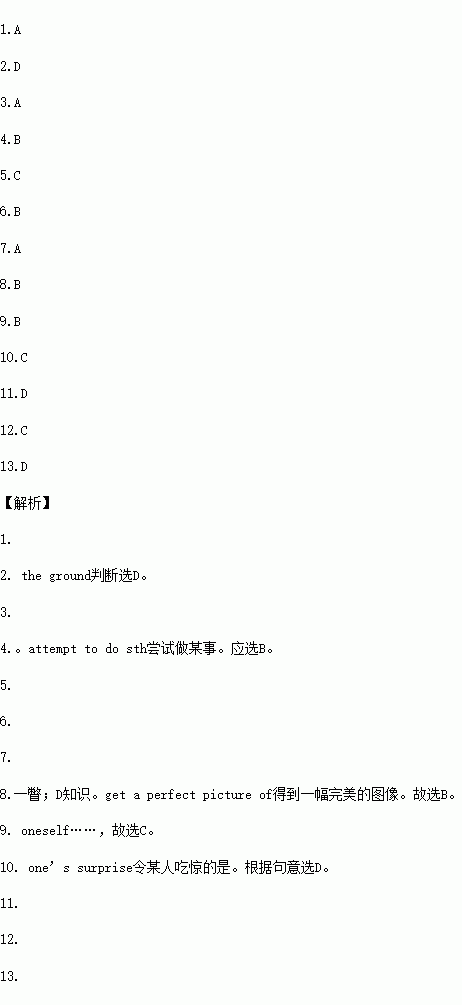题目内容
A
On my way to work every day, I drive down a street lined with pine trees. One tree in particular my attention. It must have suffered some . Part of its trunk grew nearly parallel to the ground, and then in an effort to its own course of life, the trunk took a 90 degree turn to stand tall and stretch toward the sun.
Each day as I drove by, I saw this bent but determined tree and I would be . It was a reminder to me that I may not have had the best start in life, I could change in the parts of my life at any time.
I was planning to stop one day to get a perfect of my kindred-spirit (志趣相同的) tree. But that week I was busy. After that week, I still didn’t take any action. Every time I drove by the tree I would myself, “Tomorrow, I’ll stop tomorrow to take one.” Then one day, as I drove by “my” tree, I glanced over, and much to my , I found a sawed-off stump (树桩) where that tree had stood. I had my plan until “tomorrow” and tomorrow proved to be too .
What have you been putting off? What would you do today if you knew you would have the opportunity to do it again? Why not do those things that you have been putting off until tomorrow?
1.A. caught B. paid C. fixed D. escaped
2.A. experience B. influence C. defeat D. damage
3.A. change B. design C. follow D. imagine
4.A. applying B. attempting C. learning D. happening
5.A. satisfied B. interested C. encouraged D. educated
6.A. even though B. as if C. in case D. if only
7.A. habit B. direction C. plan D. purpose
8.A. review B. picture C. glance D. knowledge
9.A. call B. help C. tell D. warn
10.A. regret B. pleasure C. happiness D. surprise
11.A. cut off B. taken off C. put off D. called off
12.A. sad B. far C. good D. late
13.A. never B. ever C. surely D. almost

